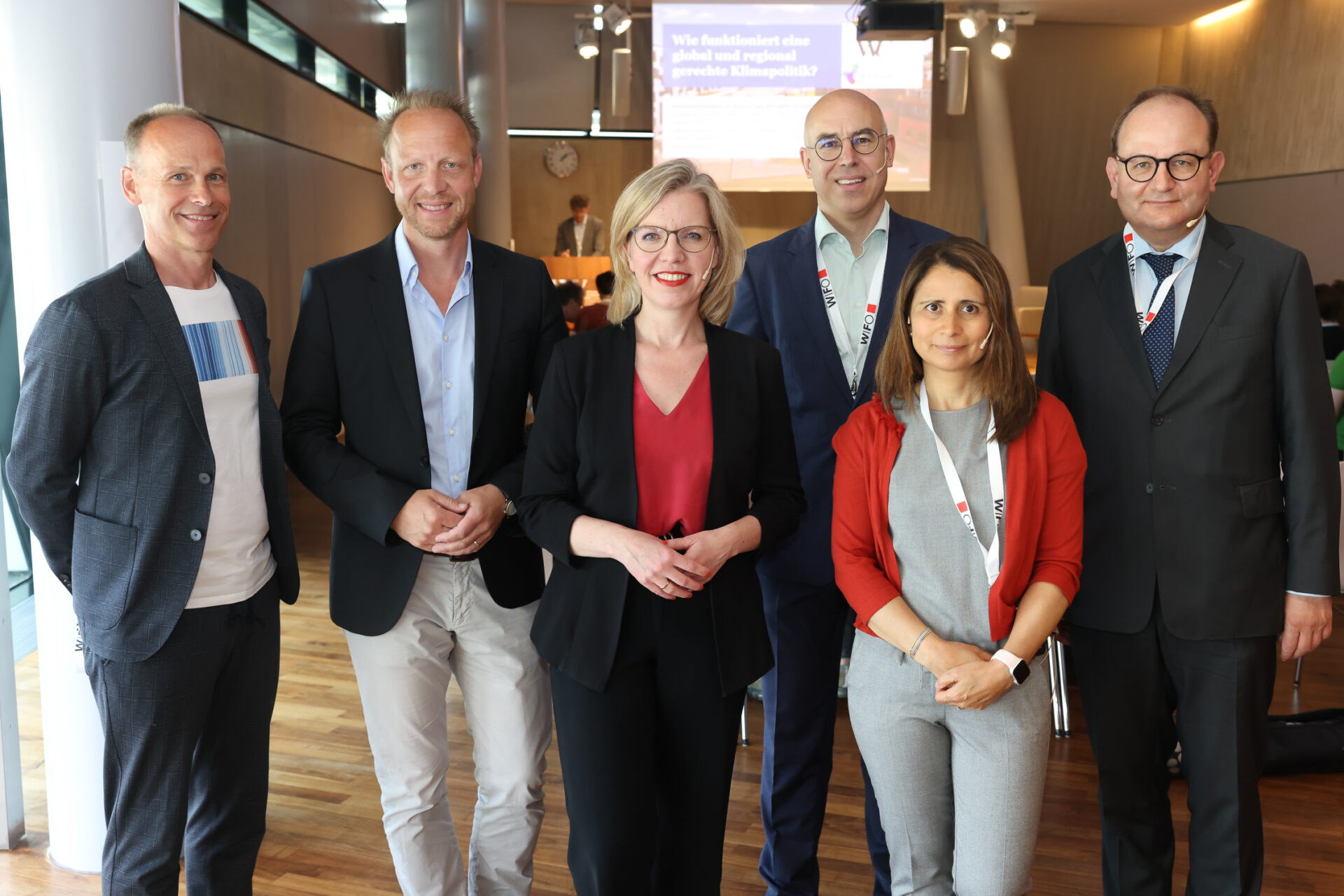
Climate Protection as an Advantage for Europe
According to WIFO Director Gabriel Felbermayr, the often-discussed compatibility of the economy and climate protection is "pointless". "Economy and climate protection are not contradictory. Doing nothing is not an option, because we certainly cannot afford that." One need only think, for example, of famine caused by climate change.
Federal Minister Leonore Gewessler pleaded that the fight against climate change could not be postponed, even in view of the war in Ukraine. "On the contrary, we need to find ways to implement climate policy even in a multiple crisis situation."
Ottmar Edenhofer (TU Berlin, MCC, PIK) agreed. "We need to use the Ukraine crisis to promote the European Green Deal. Oil and gas consumption must already be reduced by 2030. This makes it all the more regrettable that the European Parliament has softened the second Emissions Trading Scheme for road transport and buildings (ETS-2)." Nevertheless, there has been enormous progress over the past 20 years, he said. "Climate policy must be socially just. There is a broad majority for climate policy across political parties in the EU, unlike in the USA. That's a huge advantage for Europe."
For Eugénia Da Conceição-Heldt (TU Munich), the EU is also a role model internationally, despite all the justified criticism. "EU Green Deal, Fit for 55 – the EU has proven that it can be fast and take action." She added that people must now also be prepared to spend more money on climate protection. "For example, creating incentive systems for countries to pursue climate protection."
The panel discussion took place at the campus of the Vienna University of Economics and Business as part of the project "The Role of Structural Change and Distributional Effects" (ROCHADE). WU Vienna and WIFO were local partners. The Federal Ministry of Education and Research of the Federal Republic of Germany and the Austrian National Bank sponsored the event.
The panel discussion was preceded by an English-language, scientific ROCHADE conference. Do ambitious climate policies prevent economic development? Do rising CO2 prices burden poor households in the global South in particular? These questions were discussed with leading international scholars researching the development and distributional impacts of climate policy and the transformation of the global energy system.

